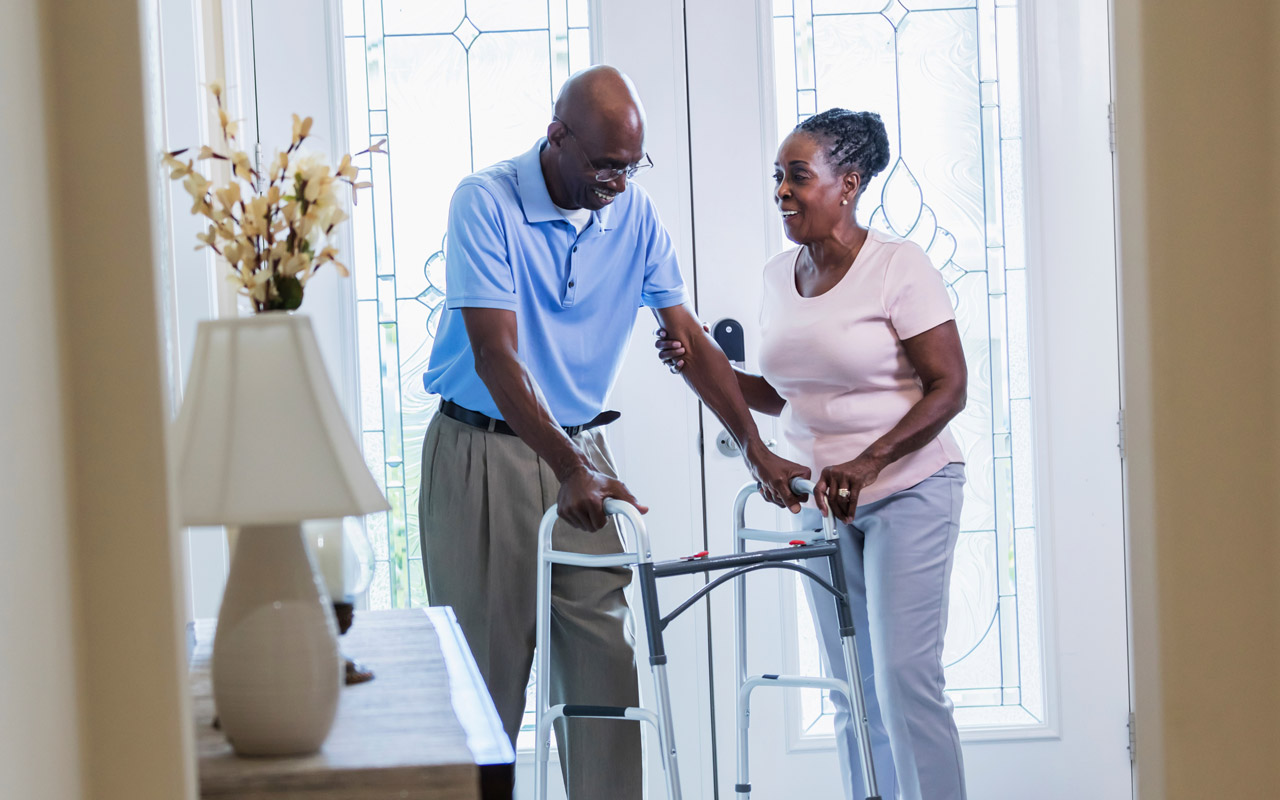For many patients, returning to their home after a hospital stay offers an opportunity to recover in a familiar environment, where getting back to the activities of daily life can provide a faster return to strength and peace of mind.
A Physical and Emotional Impact
A hospital stay of even a few days due to an illness or injury can have an impact on an older patient’s physical and emotional health. Making the patient and their loved ones aware of these changes and helping them deal with them before discharge is an important part of care at Penn Medicine Princeton Medical Center (PMC).
 Some level of decline in physical strength can occur after just a few days in the hospital. “In fact, in older patients there is a decline in physical strength equal to seven days for every one day spent in a hospital bed,” says Dawn Cicchetti, RN, BSN, MPA, CCM, Director of Case Management, Penn Medicine Princeton Medical Center.
Some level of decline in physical strength can occur after just a few days in the hospital. “In fact, in older patients there is a decline in physical strength equal to seven days for every one day spent in a hospital bed,” says Dawn Cicchetti, RN, BSN, MPA, CCM, Director of Case Management, Penn Medicine Princeton Medical Center.
Depending on the reason for the hospitalization, mobility and strength can be regained as the patient returns home and resumes their regular activities, or through physical therapy, if needed.
Older adults who have a sudden change in their mental health during a hospital stay may experience restlessness, disorientation, and confused thoughts and speech.
“There are several factors that can lead to these changes in an older patient during a hospital stay,” says Cicchetti. “The illness or injury that led to their hospital stay can be an obvious cause of physical and mental changes, but so can a change in medication, the process of recovering from anesthesia, and the disorienting nature of being in an unfamiliar environment and out of their regular routine.”
Transitioning Home
 Because the physical and mental health changes that can result from a hospital stay can have lasting effects, a multidisciplinary team at PMC begins evaluating each older patient as soon as they are admitted to the hospital. Along with physicians; nurses; and experts in physical, occupational, and speech therapy, PMC’s case management team conducts a comprehensive health assessment. Team members also work with the patient and their family to gain an understanding of their living conditions and support network to determine what plans may need to be put in place before discharge.
Because the physical and mental health changes that can result from a hospital stay can have lasting effects, a multidisciplinary team at PMC begins evaluating each older patient as soon as they are admitted to the hospital. Along with physicians; nurses; and experts in physical, occupational, and speech therapy, PMC’s case management team conducts a comprehensive health assessment. Team members also work with the patient and their family to gain an understanding of their living conditions and support network to determine what plans may need to be put in place before discharge.
When evaluating whether returning home is the best option for an older patient, there are many things to consider. Returning home will require a safe environment that is free from tripping hazards and can accommodate any reduced physical abilities. Help may be needed with some daily activities such as preparing meals, bathing, wound care, and medications. Additionally, physical, occupational, or speech therapy may be needed.
“We work with the patient and their family to devise a discharge plan that will help them transition safely from their hospital stay,” says Cicchetti. “This can be a difficult time for patients and their families, so having us to lean on can make a big difference. Our team can help with many things, which may include finding home nursing care or equipment like a walker, putting together a physical therapy plan, or, if needed, finding a skilled nursing or long-term care facility that offers the continued care and support that is needed.”
“The hope is that the patient will be able to return home, since being in a familiar environment can help make recovery easier,” says Cicchetti. “That is what we work toward, but if medical needs mean the patient needs more attention than they can receive at home, we help the family work through that process as well.”
Within 24 hours of discharge home, every patient receives an automated call from Princeton Health to check on their health. Depending on the patient’s responses during the call, a nurse may call back to offer help and instructions. For urgent issues, it is important to contact the patient’s doctor’s office or call 911 in case of an emergency.
|


 Checking in After Discharge
Checking in After Discharge